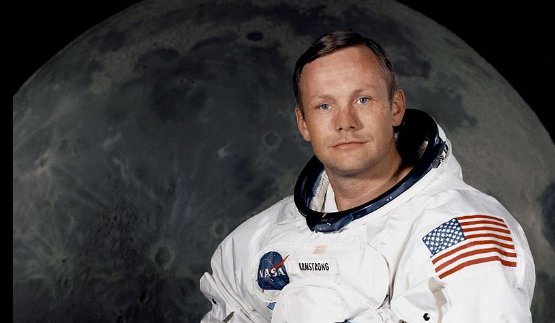When History Forgot About Neil Armstrong

The name “Neil Armstrong” is known throughout the United States if not the world — as it should be. Neil Armstrong was the first among us to walk on the moon, a feat which even by today’s standards seems impossible. His quote (misquote?) — “That’s one small step for man, one giant leap for mankind” — is one of the most recognizable of them all. His feat was so great that even the name of the second guy to do the same — Buzz Aldrin — is pretty well known.
And that was immediately the case — Armstrong was famous before he even returned to Earth. But it wasn’t always the case. For a while, the world forgot about Neil Armstrong.
When the Apollo 11 mission landed on the moon it did so with Earth-stopping fanfare — the event warranted a live worldwide broadcast and an address from the President. Upon their return back home (after some time in quarantine, to keep space infections contained) victorious astronauts were greeted as heroes, with parades and the rest of the pomp and circumstances expected by those who accomplished such a feat. And the fame wasn’t limited to the United States. Armstrong, Aldrin, and Command Module pilot Michael Collins were feted around the world, treated as heroes as they toured the Western Hemisphere and Europe.
But that fame was fleeting — dramatically so.
According to the book “No Requiem for the Space Age: The Apollo Moon Landings and American Culture,” by Matthew Tribbe, the one-year anniversary of the Apollo 11 mission was hardly the party one would have expected. Per the book, “although almost every news outlet ran some kind of feature recalling the event, the real story of the summer of 1970 was the bleak future NASA faced in light of continuing budget cutbacks.” And, shockingly, “a vast majority of Americans could not even remember the name Neil Armstrong.” NPR’s Rober Krulwich outlines the details:
“One year ago his name was a household word,” said the Philadelphia Sunday Bulletin. But when the Bulletin asked its readers in 1970 to name the first man on the moon, the guy who said, “One giant step for man … ,” 70 percent of Philadelphians didn’t know.
As Tribbe points out, the New York Times did a similar study around that time, asking the same question in an informal telephone poll, and in St. Louis, only 1 in 15 respondents got it right.
In Portland, Maine, it was 1 out of 12.
In Milwaukee, 5 out of 12.
In New York City, 8 out of 22.
By the time 1974 was coming to a close, this collective yawn toward those who landed in the Sea of Tranquility was notable in its own right. That December, the Chicago Tribune ran an article titled “What Ever Happened to Neil Whosis?,” a not-so-subtle reference to Armstrong’s former fame. And early in the article, the author echoes the sentiments above: “You probably have forgotten most of it [the moon landing] by now, and couldn’t care less.”
It’s unclear why Armstrong’s name fell to the wayside. (The Tribune article attributes it to the other circumstances of the time, noting that landing on the moon ended the space race, and, perhaps more importantly, “the idea of doing something just to beat the Russians now seemed silly” in light of the casualties being suffered in the Vietnam War.) And it’s also unclear why his fame rebounded. But for a few years after he walked on the moon, no one really cared about Neil Armstrong.
Bonus fact: So, what did ever happen to Neil Armstrong during that time period of virtual anonymity? Armstrong retired from NASA in 1971 and took a position teaching aerospace engineering at the University of Cincinnati, but left that position in 1979. After that, he lived a pretty quiet life and shunned the spotlight to the point of rarely signing autographs (he didn’t like that they were being resold). But his fame, having returned, was inescapable — and comedically so at one point.
In 2005, Armstrong’s barber had an incredible idea: he collected the astronaut’s hair scraps and sold them, fetching $3,000 in the process. (The buyer, per NBC News, was “a collector listed by the Guinness World Records as having the largest collection of hair from historical celebrities” whose collection at the time was “insured for $1 million” and “purportedly include[d] hair from Abraham Lincoln, Marilyn Monroe, Albert Einstein and Napoleon.”) Armstrong sued the barber, hoping to get the hair back (!), but that proved difficult. So the two agreed to have the barber donate the three grand to charity. And yes, Armstrong found himself a new barber after that.
From the Archives: Man, A Man: Neil Armstrong’s most famous quote is, perhaps, a misquote (as noted parenthetically above).
Related: “No Requiem for the Space Age: The Apollo Moon Landings and American Culture,” by Matthew Tribbe.
